TREC – Tara Europa was a unique and unprecedented scientific expedition. From April 2023 to July 2024, samples were collected from along the entire length of the European coast, both at sea by Tara Ocean Foundation’s schooner Tara and on land by EMBL’s mobile laboratories. The resulting collection of data, originating from more than 100 sites across 21 countries, represents a critical resource to advance understanding of marine biodiversity and how it changes with space, time and human impact.
In addition to the scientific potential of the expedition, TREC – Tara Europa was also a unique opportunity to connect, communicate and engage with a broad and diverse public. The design and implementation of a rich programme of activities ensured this opportunity was fully seized to share knowledge, advance understanding and raise awareness about ocean science, marine biodiversity and environmental challenges.
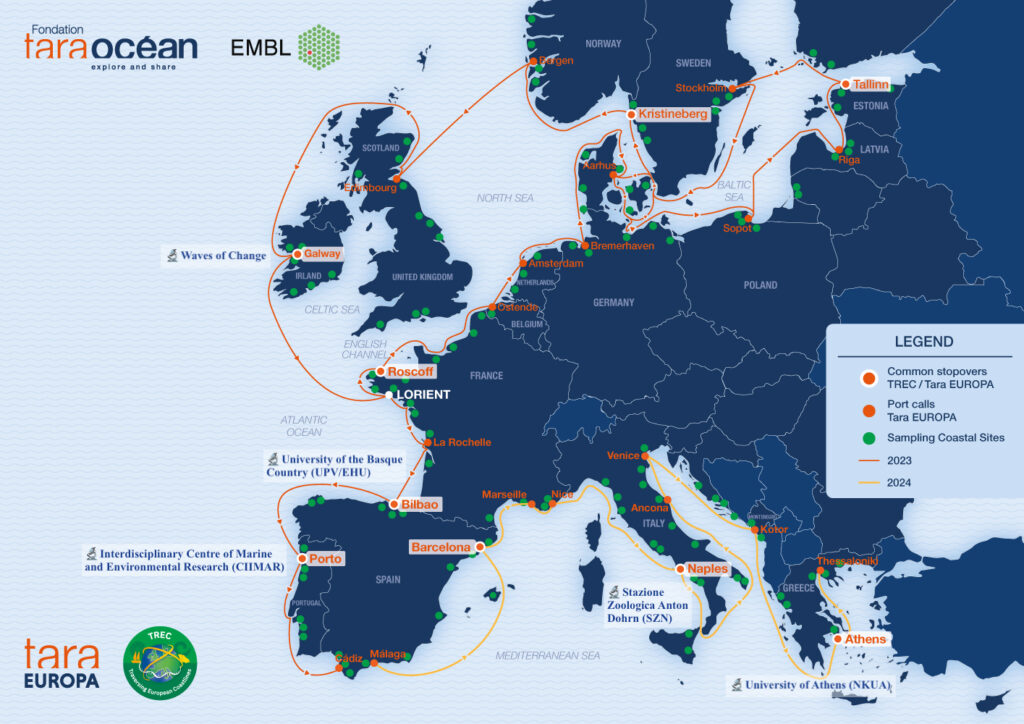 Map of the TREC – Tara Europa expedition. Public outreach and engagement activities were organised at common stopovers. Curiosity microscope recipients are indicated by the symbol: 🔬. Credit: Tara Ocean Foundation.
Map of the TREC – Tara Europa expedition. Public outreach and engagement activities were organised at common stopovers. Curiosity microscope recipients are indicated by the symbol: 🔬. Credit: Tara Ocean Foundation.
Outreach and engagement activities were provided for local communities at TREC – Tara Europa common stopovers. At these key locations along the expedition route, the Tara schooner docked and EMBL mobile laboratories were located onsite to carry out more in-depth scientific studies. Within the framework of BIOcean5D, freely available events were offered by the Tara Ocean Foundation in collaboration with local partners.
These events included guided visits of the schooner, presentations of the science carried out, talks from scientists and crew members, in addition to exhibitions, interactive workshops, activities and conferences. In total, more than 9,000 people attended these activities, including local schools, with class visits organised for students aged 8 to 19, as well as the general public, local scientists and political stakeholders.
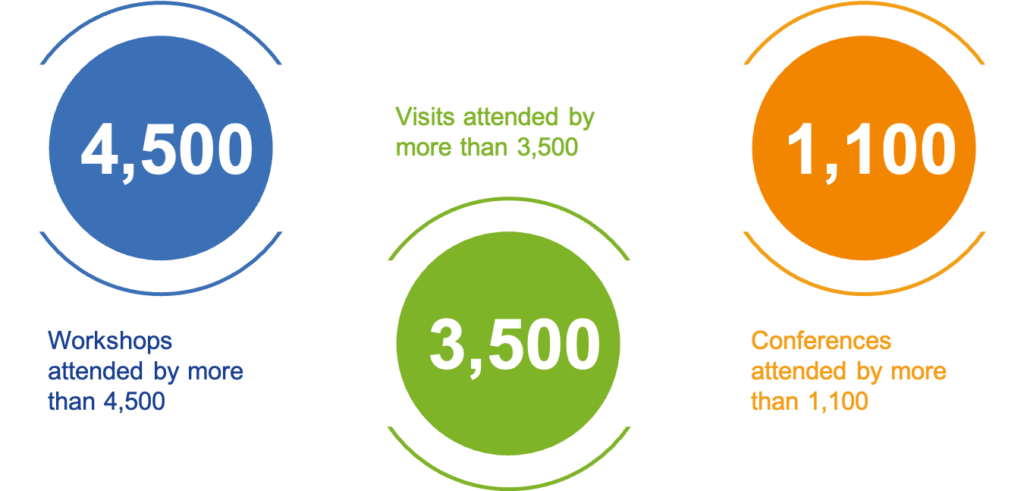
“Science can appear intimidating, but public engagement tools make it approachable for everyone,” explains Anne-Marie Alleaume, BIOcean5D’s Public Engagement and Outreach Project Manager and member of Tara Ocean Foundation’s Ocean Literacy team during the TREC – Tara Europa expedition. “Visitors of all ages can build upon their own knowledge and gain a deeper understanding of current environmental challenges and the importance of research.”
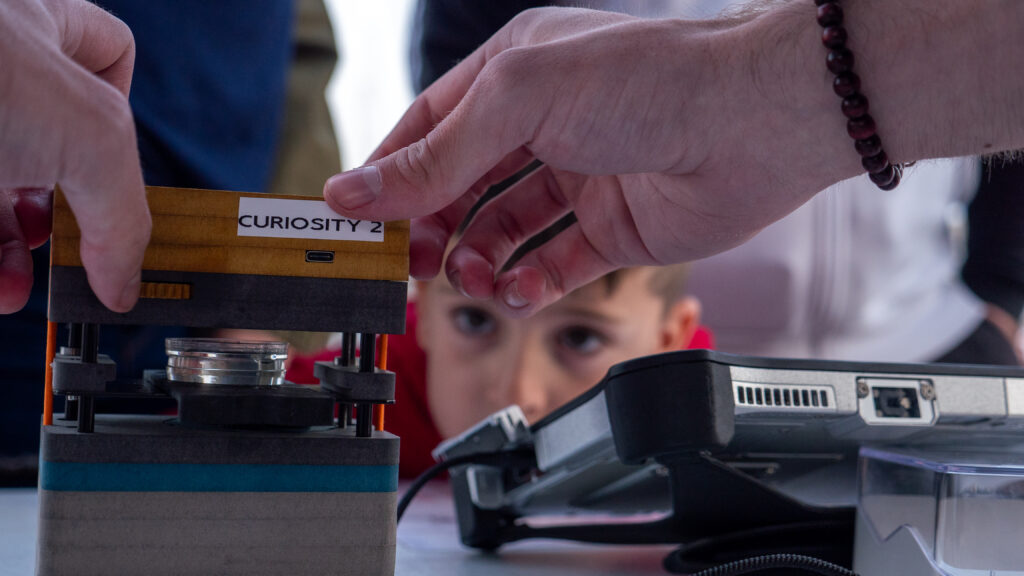 © Louise Cognard – Fondation Tara Ocean
© Louise Cognard – Fondation Tara Ocean
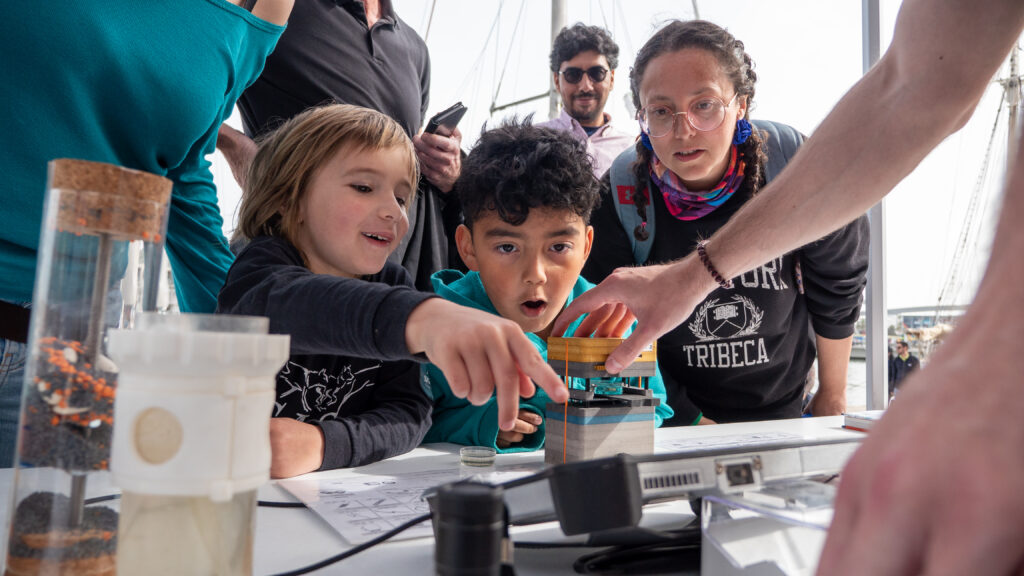 © Louise Cognard – Fondation Tara Ocean
© Louise Cognard – Fondation Tara Ocean
The opportunity to observe plankton in local seawater samples was provided by the ‘Observing the Invisible Inhabitants of the Ocean’ workshops. “Even members of coastal communities can be unaware of the existence of marine microorganisms, their importance and their fragility in the face of human activities,” explains Anne-Marie. Curiosity microscopes provided attendees with hands-on experience exploring marine biodiversity. Combined with exhibitions, colouring activities and games, participants discovered the vital role of marine microorganism biodiversity in the health of our planet, stimulating interest and engagement about the importance of preserving plankton biodiversity.
At each stopover, local partners with strong outreach programmes were actively involved in the organisation of public engagement activities. Each of these organisations was provided with a Curiosity microscope to facilitate, support and expand existing outreach activities locally (see map).
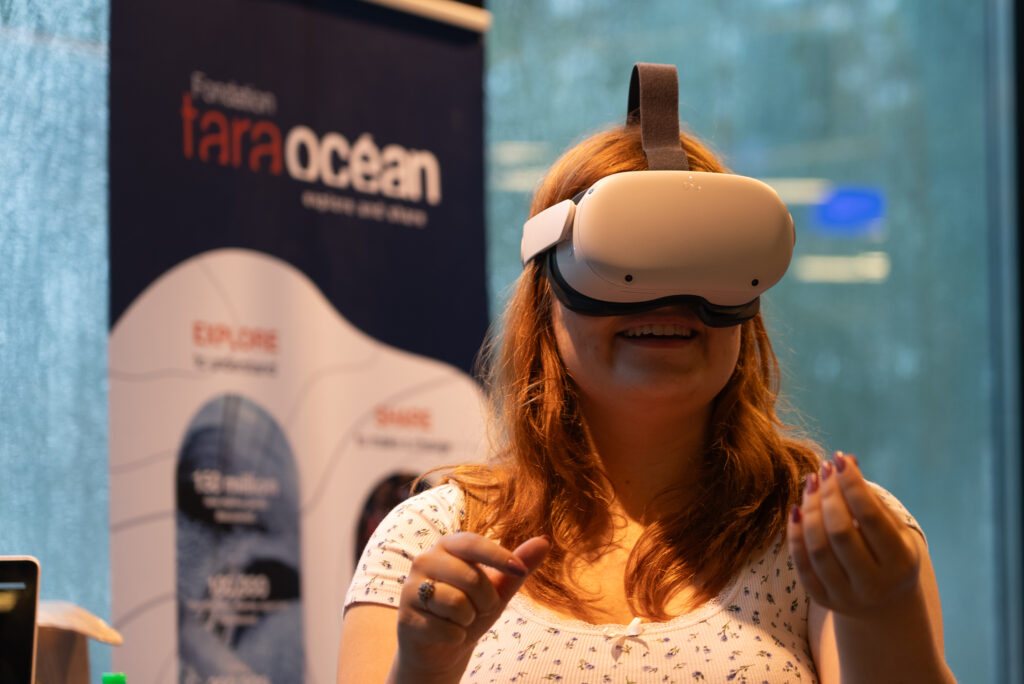 © Anne-Kristell Jouan – Fondation Tara Océan
© Anne-Kristell Jouan – Fondation Tara Océan
An interactive discovery of the ocean’s microscopic inhabitants was provided by PlanktoQuest, a virtual reality application developed by Johan Decelle, CNRS researcher and leader of the Photosymbiosis team of the Cell & Plant Physiology Laboratory (LPCV). The PlanktoQuest headset allows the user to explore and manipulate marine plankton with their hands within an immersive, augmented reality experience.
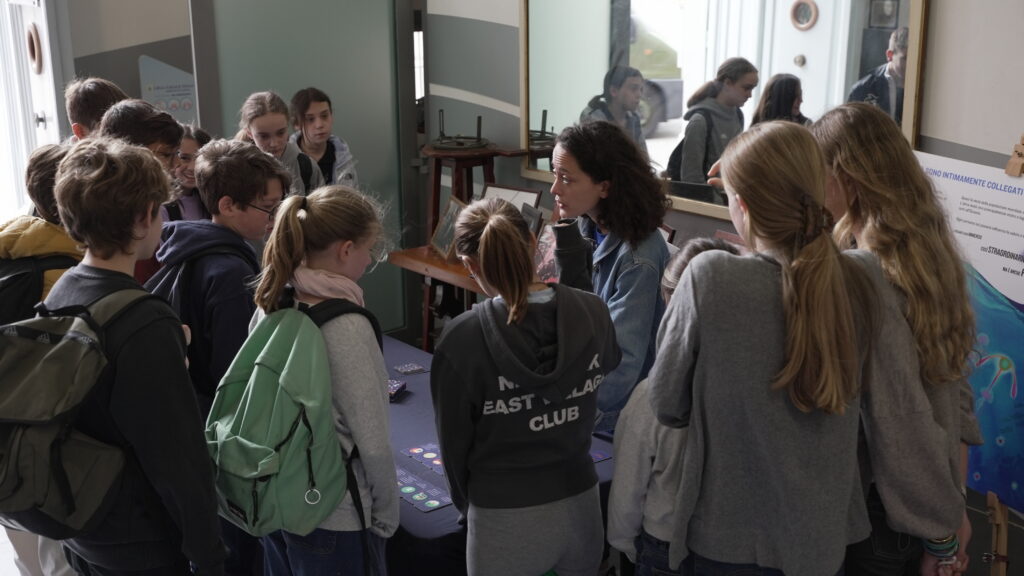 © Sylvain Elfassy – Fondation Tara Océan
© Sylvain Elfassy – Fondation Tara Océan
The topic of ocean pollution was addressed by workshops and exhibitions that explored the sources of plastic pollution at sea and the development of solutions. ”Knowledge is key for citizens to make informed decisions about their future,” explains Anne-Marie. “Outreach activities are designed to share scientific knowledge in an informal setting, to inspire participants and invite them to develop their curiosity and engagement.”